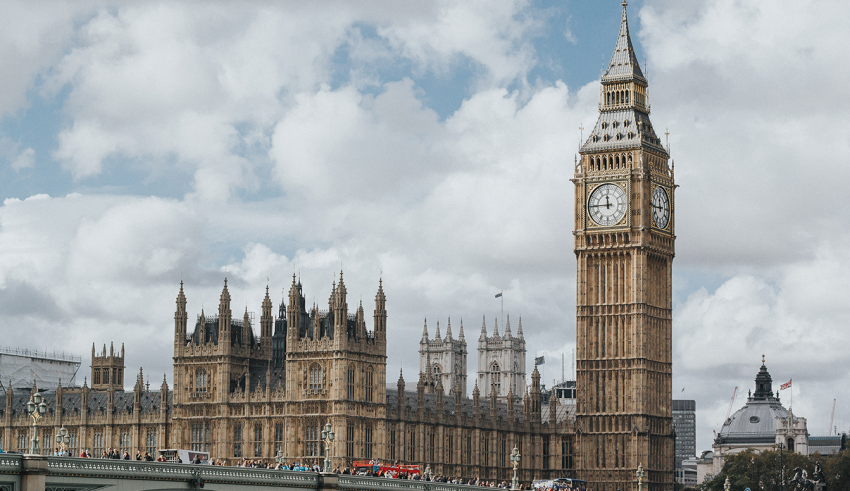AG INSIGHT | 11/08/2023
Tackling the UK’s multilayered crises needs new levels of collaboration across sectors and demographics

Rachel Solomon Williams, the Aldersgate Group’s new Executive Director, highlights the importance of credible long term policy decisions to address the crises currently impacting the UK.
In recent weeks, the media has been busier than ever debating the merits of delivering net zero and protecting the UK’s environment. Most members of the public, though, have one pressing issue on their minds: how are they going to pay the bills next month? And are they going to have to make different life choices to ensure that the bills can be paid? As ever, those on the lowest incomes are the first to be hit, with the least recourse to alternatives.
There are of course widely varying views on how to tackle the growing disparity between incomes and living costs, including the role of the state. Solutions can be complex, with pro-environmental interventions often portrayed either as an economic threat or as a game-changing opportunity. The reality is nuanced, but with the right policy approach these interventions can play an important role in addressing these issues.
To find answers we must sweep aside black-and-white value judgements about individual solutions, and instead find new ways to communicate and collaborate across sectors. Societal change is happening at a faster rate than ever before, influenced by a huge number of factors. Pulling a single lever within one part of the economy does not deliver one outcome – it will have a range of complex consequences, many of which are hard to predict, and all of which are influenced by other levers being pulled simultaneously. But much public discourse is still heavily binary, and knee-jerk reactions to binary arguments rarely deliver sustained positive results. For instance, the 2010 Feed-in Tariffs Scheme primarily collapsed because it was introduced in response to external pressure, with speed prioritised over a full consideration of purpose and policy design. (Today’s success of domestic solar PV is largely due to huge panel price reductions and a VAT exemption on labour costs.) A nuanced and inclusive conversation about the best way to support solar PV could have delivered a more sustainable result for the industry and communities.
New partnerships are needed which bring together individuals and organisations with different expertise to find nuanced solutions to complex problems. Sometimes this might necessarily involve uncomfortable conversations that challenge assumptions across a whole spectrum of views. Such conversations should be open and inclusive, bringing in members of the public from across the demographic spectrum, as well as those private and public sector organisations with the immediate delivery remit or commercial interest. The Climate Change Committee’s 2020 Climate Assembly demonstrated the power of inclusive discussion in creating strong policy recommendations and ensuring a focus on fairness. There has been limited broad follow-up to the Assembly, though, leaving environmental discussions still isolated within like-minded groups (favourable or otherwise) which fail to bridge differences of experience.
After a fortnight with the Aldersgate Group I have been struck by the way we can drive convening and collaboration to support high-quality discussions and decision-making. Our members span a range of business sectors, alongside NGOs, academic institutes and public sector organisations, so we can bring together views that are genuinely diverse to generate well-considered solutions. Members agree that there doesn’t need to be a binary choice between prioritising the economy and the environment; I think they would also agree that finding co-beneficial solutions can be challenging but are possible, with the right evidence-building and collaboration.
An example of a cross-cutting opportunity awaiting clearer direction is investment into key sectors of the UK economy – this includes industries delivering a wide range of environmental benefits such as carbon reduction and nature restoration. Building and operating infrastructure, including for delivery of net zero, means employing people with diverse levels of skills and expertise in all parts of the value chain, often in areas of the country which have less access to employment.
There is plenty of equity and debt capital available in the market to support such investments, as long as those providing the capital can see the long-term benefits and returns that will follow. Notably, ESG fund managers are scouring the market for projects that meet their investment criteria in terms of both returns and outcomes. The best way that any Government can secure financial stability for the public in the medium and long term is therefore to set a clear and credible vision for the future across all sectors of the economy and back it up with a robust policy framework. Credibility will be based on whether investors perceive that sectors given priority are safe from future risks and consistent with long-term cross-sectoral trends. More specifically, will there continue to be a demand for the product in question, and what will be the market price for it?
To secure these investments, it is crucial that the UK Government sets out an ambitious and long-term delivery plan for meeting its climate and environmental objectives. If the UK does not provide the right investment conditions those funds demonstrably can and will go elsewhere. The US Inflation Reduction Act is one driver for that trend (on which subject Aldersgate Group will publish detailed analysis in the coming weeks), though not the only one. For instance, a FTSE Russell survey of asset owners identified the limited availability of ESG data as the largest barrier to sustainable investing: clearer reporting standards backed by a UK Green Taxonomy will also be essential to building the credibility of investment opportunities. Creating the conditions which pulls through investment will deliver direct prosperity benefits for individuals as well as companies.
This brings us full circle to tackling the cost of living crisis: going into the autumn, the public wants to know that those in leadership positions are looking for solutions. Along with the investment community, they will also want to understand the rationale for such solutions, and that they are credible and sustainable in the long term. This means thinking beyond knee-jerk responses and looking to support investments into green infrastructure and its associated jobs. The Aldersgate Group stands ready to support the collaboration which is needed to get there.



